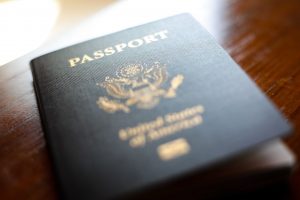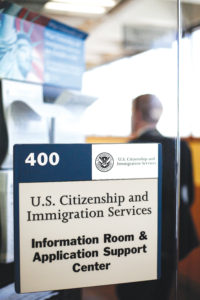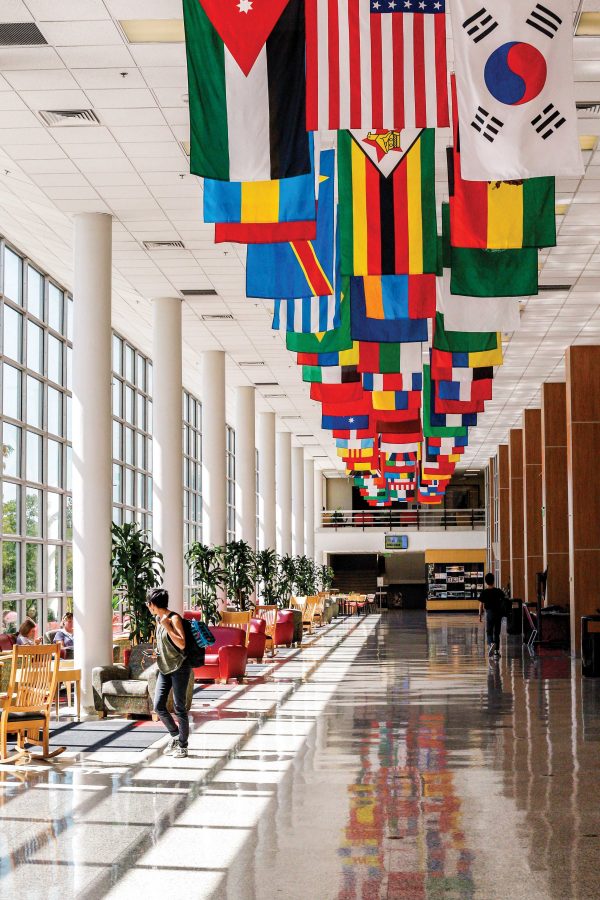New legal changes made to the International Student and Scholar Services Office may heavily impact students at the University of Utah. In May, the United States Citizenship and Immigration Services (USCIS) released a policy memorandum to the public bringing attention to changes made as to how they will calculate unlawful presence to students and visitors who don’t maintain their status in the United States.
To have unlawful presence means to stay in-country after the time period the Department of Homeland Security authorizes.
As a result of accrued unlawful presence, those who violate it may face a three to 10-year bar. This means that depending on how many days their stay is in violation, they may be subject to denied readmission to the U.S. for up to 10 years if they choose to reapply for admission.
Depending on how much time is accrued in violation, an individual may have to accept punishment ranging from being denied readmission into the U.S., ineligibility to apply for a visa or adjustment of status to permanent residence. Some exceptions may be made according to the situation and reason for violation, however.

Currently, the University of Utah has approximately 2,900 foreign students enrolled. Most international students hold F-1 and J-1 visas- allowing them entry into the U.S. and campus.
“The University of Utah fosters and supports a global campus community and values international students and scholars as an integral part of a vibrant and productive university. The U is committed to supporting and assisting its international students with resources and education to help navigate the immigration and visitation laws of the United States,” said Christopher Nelson, spokesperson at the U.
The students affected at the U are nonimmigrant, exchange or vocational students. In other words, “F, J, and M” statuses. Those who fall under these categories are those who enter the U.S. on a temporary basis. Some of the things that fall under this status include study, business, tourism or temporary work. Those who obtain this status are restricted to acting on the reason that allows them to enter the country.
According to the U’s International Student and Scholar Services Office, those who failed to maintain their status by Aug. 9, 2018 began to accrue unlawful presence on the date they failed to do so unless they already began accruing it as soon as:
- The day after DHS denied the request for an immigration benefit if DHS made a formal finding that the individual violated his or her nonimmigrant status while adjudicating a request for another immigration benefit
- The day after their I-94 expired; or
- The day after an immigration judge or in certain cases, the Board of Immigration Appeals (BIA), ordered them excluded, deported, or removed (whether or not the decision is appealed).
Those who fail to maintain status on or after Aug. 9, 2018, begin accruing unlawful presence around or as soon as:
- The day after they no longer pursue the course of study or the authorized activity or the day after they engage in an unauthorized activity
- The day after completing the course of study or program, including any authorized practical training plus any authorized grace period
- The day after their I-94 expires; or
- The day after an immigration judge, or in certain cases, the BIA, orders them excluded, deported, or removed (whether or not the decision is appealed).
At the U level, the students with F-1 or J-1 visas are subject to many rules regarding their educational status. These students must be registered as full-time students taking 12 credits or more. They also must submit how many hours they work.
Under these new policy changes, those visa holders who violate the new rules will now immediately fall under “unlawful presence.” After a certain number of days of accrued “unlawful presence,” the students will then face a ban to reenter the U.S. from three to 10 years.

In the past, the previous USCIS policy made it so students were not subject to accruing “unlawful presence” without first being notified by the government.
“The U’s International Student and Scholar Services office works with each student to ensure students receive support and education on the rules related to ‘unlawful presence’. There are still many unanswered questions related to the recent rule change and the university is waiting for additional direction from the USCIS,” Nelson said.
These changes result from a past where persons who fell into these categories violated their allotted time in the country, failed to maintain legal status, and broke the agreements that were made. According to the president, this is the agreed way to prevent more frequent overstays.
These new changes align with President Trump’s decision to enforce immigration laws. They also went into effect on Aug. 9, 2018. This decision was addressed through the Executive Order: Enhancing Public Safety in the Interior of the United States that was enforced on Jan. 30, 2017.
The order addresses the purpose of this decision and why, and the executive branch’s role in enforcing this policy and actions that will accompany elected officials in selected positions relevant to this order. “This order shall be implemented consistent with applicable law and subject to the availability of appropriations,” said the President.
As far as the University of Utah Asia campus (UAC) is affected, those U.S. students traveling to Korea will need a student visa in Korea and are required to follow the Korean immigration laws. The new rules apply to foreign students coming from the Korean campus to spend a semester at the campus in Utah.
More information and insight about the recent rule change is available from NAFSA: Association of International Educators online at https://www.nafsa.org/Professional_Resources/Browse_by_Interest/International_Students_and_Scholars/Accrual_of_Unlawful_Presence_and_F,_J,_and_M_Nonimmigrants/
The U of U’s ISSS office has also provided information on their website: https://internationalcenter.utah.edu/news/8-22-2018-Unlawful-Presence.php.
Students with questions are encouraged to contact the office by calling 801-581-8876.


